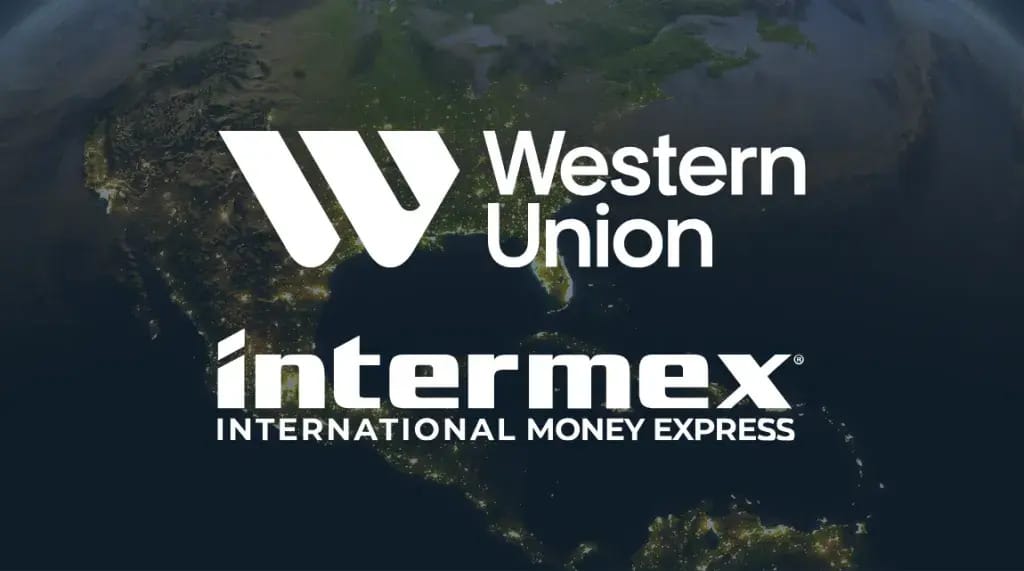- The Banking Brief
- Posts
- Honeycoin raises $4.9M, Revolut Hires ex-Adumo Exec, Western Union Acquires Intermex
Honeycoin raises $4.9M, Revolut Hires ex-Adumo Exec, Western Union Acquires Intermex
Cross-border settlements are heating up
The Banking Brief
Golden Nuggets
HoneyCoin Raises $4.9M to Transform Cross-Border Payments
Western Union to acquire Intermex for $500 million, creating a combined user base of 21 million and potential wider adoption of Ripple’s XRP for settlements.
Revolut is still set to enter the South African market, hiring Tom Morrison, former Adumo COO, to spearhead strategic growth plans.
Main Stories

1. HoneyCoin Raises $4.9M to Transform Cross-Border Payments
Why it matters: Cross-border payments in Africa face challenges like delays and high fees despite a $329 billion market. HoneyCoin’s blockchain-powered stablecoin infrastructure promises same-day settlements at a fraction of traditional costs, tackling these pain points head-on.
Zoom in:
What’s are stablecoins? Stablecoins are a type of cryptocurrency that are pegged to a Fiat currency like the US Dollar. This means they fluctuate less than your traditional cryptocurrencies like Bitcoin or Ethereum.
Who Funded Them? This round was led by Flourish Ventures with a seasoned syndicate including Visa Ventures and TLcom Capital, the round boosts HoneyCoin’s expansion into Mozambique, Zambia, Rwanda, Francophone Africa, Latin America, and Asia which seems like massive expansion fairly fast.
Profitable? The Nairobi-based startup claims profitability for two years and monthly B2B transaction growth of 16%, alongside consumer growth via its Peer app.
HoneyCoin’s platform directly connects with banks, mobile money networks, and global partners like MoneyGram, UBA Bank, and Stripe to settle transactions faster and cheaper than traditional rails.
The upcoming product suite aims to provide comprehensive payment solutions including a stablecoin debit card, banking as a service, and software POS solutions tailored to African markets.
Be smart: Investors’ renewed focus on blockchain’s actual utility vs. just crypto hype shows maturity in African fintech funding. HoneyCoin’s success could catalyze wider adoption of compliant, blockchain-enabled finance across emerging markets. The key here is blockchain being used on the backend.

2. Western Union Acquires Intermex for $500M
Who are they? Intermex, or International Money Express, is a financial services company specializing in money transfers, particularly from North America and Europe to Latin America, Africa, and Asia. Founded in 1994, Intermex provides money transfer services through retail agent networks, company-operated stores, mobile apps, and websites, enabling consumers to send money digitally and for cash pickup globally. Think of them as World Remit or Moneygram in Africa.
Why it matters: This consolidation strengthens Western Union’s position in remittances, better positioning it against digital natives like Wise and Remitly. Western Union’s growth has slowed down in the US, but keeps growing in Latin America.
Who’s Involved: Intermex adds 6 million customers and 10,000 U.S. send locations, expanding Western Union’s network to approximately 21 million users. The deal includes potential tech adoption synergies, particularly via Ripple’s On-Demand Liquidity XRP solution (i.e. blockchain solution), enabling faster cross-border settlements. Are you sensing a theme here? Seems like cross-border payments are increasingly using blockchain solutions.
Be smart: Watch how this merger accelerates digitisation of remittance services and could shift cost structures in global money transfers.
3. Revolut’s South African Market Entry: Growth Strategy
Why it matters: As one of Europe’s largest Neobanks, Revolut’s entry signals increasing competition in SA fintech space, especially in alternative lending and digital banking.
Zoom in: Revolut appointed Tom Morrison, former COO of SME lender Adumo, (who were acquired by Lesaka this year) to lead its South African expansion. This hire aligns with Revolut’s push into alternative credit products tailored to local consumer and SME needs. Revolut initially aimed to enter Africa through South Africa, but paused after compliance issues. They entered Africa with Morroco first, but have clearly still kept an eye on South Africa market.
So What? Keep tabs on Revolut’s product rollout and partnerships locally to gauge competitive shifts in personal and SME lending. They’ll likely be competing with Bank Zero and Discovery Bank. And if they simplify their offering, TymeBank’s digitally-savvy consumers.
Startup Spotlight
HoneyCoin
Founded in 2020 by David Nandwa, one of Africa’s youngest fintech CEOs, HoneyCoin uses blockchain and stablecoins to drastically reduce cross-border payment times from days to hours.
Processing $150 million in transactions monthly through an enterprise play, HoneyCoin’s platform integrates with banks and mobile networks across 45 countries, serving both consumers and enterprises.
+This
On August 16, 2025, Johannesburg hosted the massive Wiki Finance Expo, the world’s largest fintech event, spotlighting Africa’s rising influence with more than 10,000 attendees and 3,000 companies showcasing innovations in payments, crypto, and AI.
That’s a wrap. See you tomorrow!